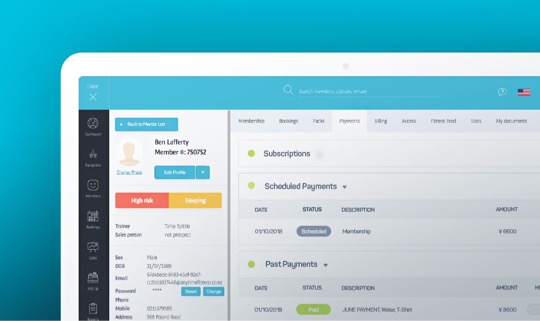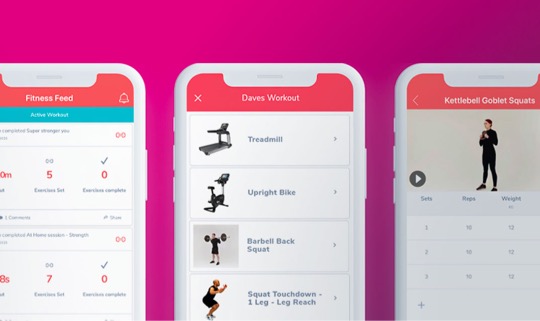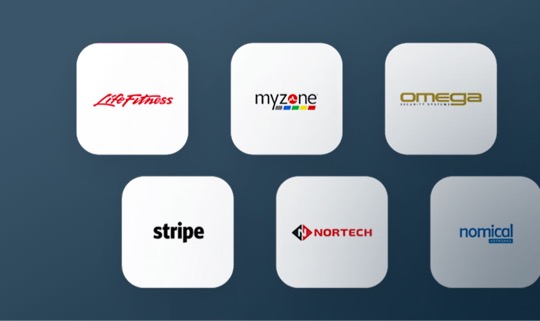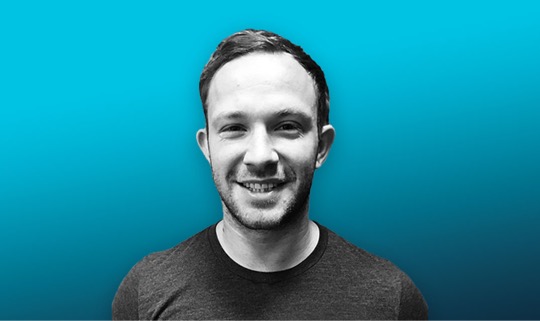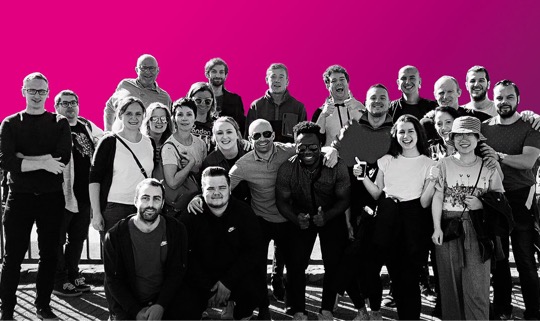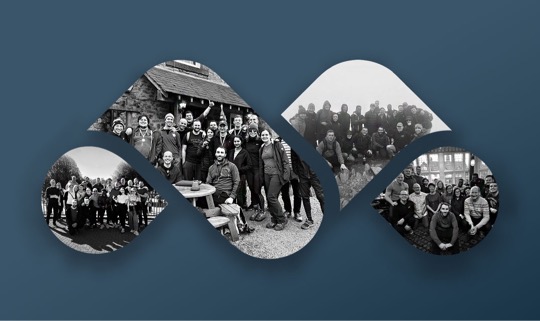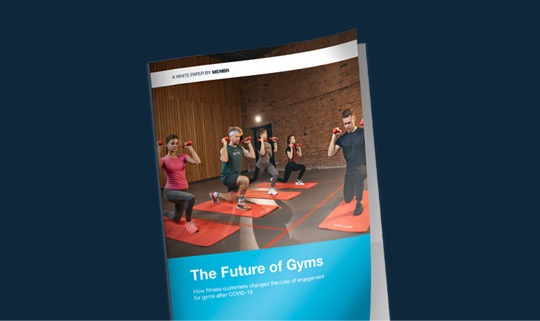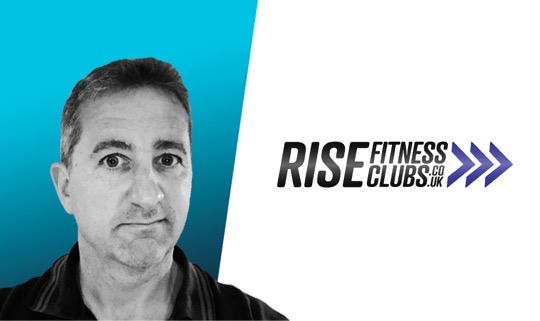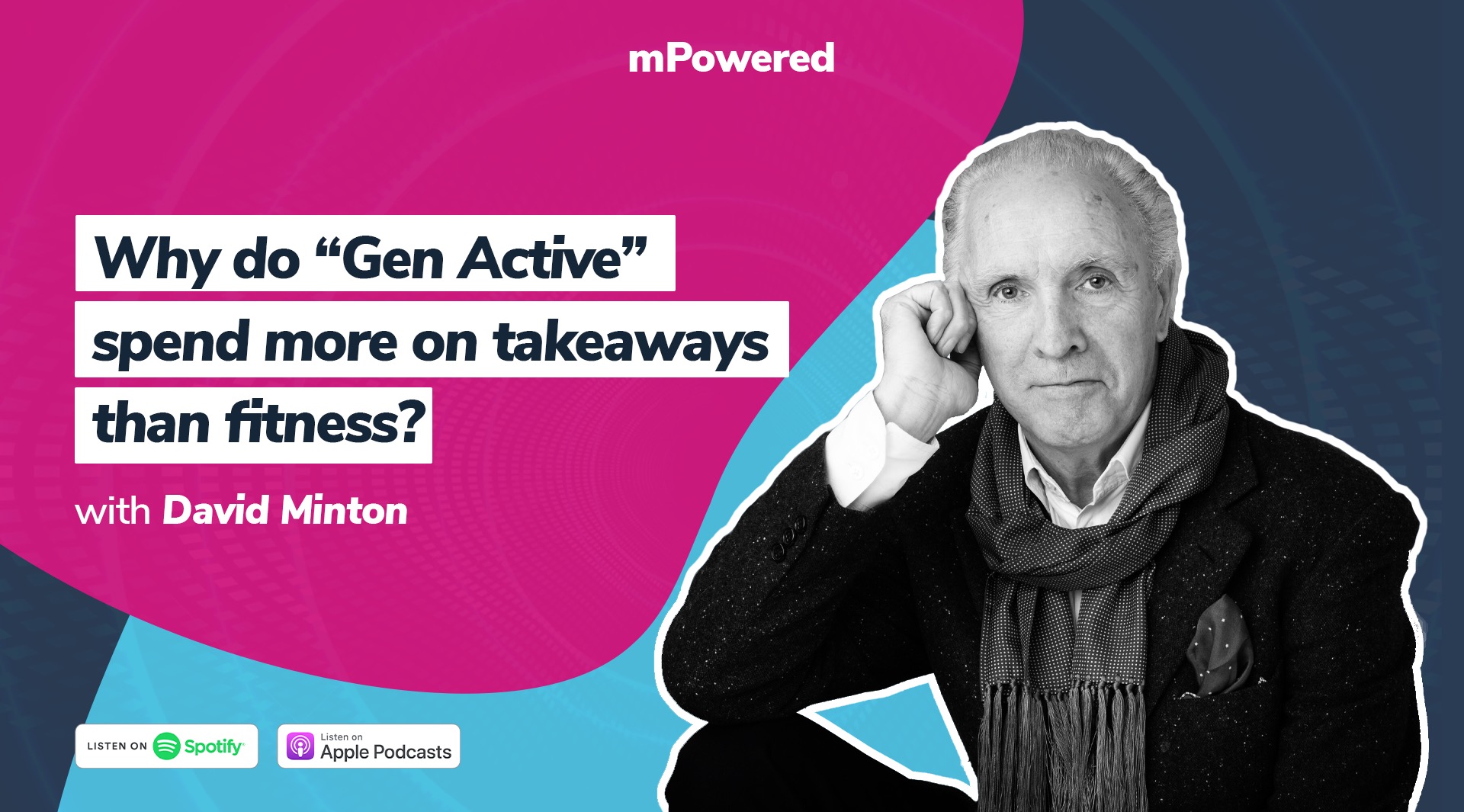[00:00:01] Craig McNeill: Welcome to mPowered and we’ve got an awesome episode for you listeners today. I’m very, very, very excited to welcome David Minton to our episode. How are you, David?
[00:00:14] David Minton: Great, great. Thanks for having me, Craig, looking forward to it.
[00:00:19] Craig McNeill: It’s really exciting. I’m I’m keen to, hope it’s okay, I’ve got, I’ve only got 240 questions, not too many for you while, while we’ve got you. And I want to find out a little bit more about what you’ve been doing recently. I think you’ve been a very, very busy man in the last, last few months I hear.
[00:00:40] David Minton: Well, the the main activity has been on the first national audit of all 7,000 fitness sites.
[00:00:49] David Minton: So the last audit we did was in 2019. And so for obvious reasons the industry and ourselves couldn’t do the normal. So the 2022 audit is greatly anticipated. And I would just love to say thank you to the team who have just been working, we estimated over 30,000 hours of research has gone into this now.
[00:01:14] David Minton: And I’d like to say, thanks also to all those 7,000 plus sites out there who have, the operators and those sites have just been fantastic and have helped us so much. And of course this is the, probably the only country that actually audits the sites in such detail. And so the figures are really important because they are then adopted as the industry figures.
[00:01:45] David Minton: They’re used by banks and funding agencies and they’re used by the government. So it’s really important. So we’re really pleased about finishing it and the the data scientists are now crunching the numbers.
[00:02:01] Craig McNeill: 30,000 hours is incredible. So yeah, we, we hope and we’re excited to hear the results and the next stage is obviously then is to absorb that. And I’m sure I’m going to ask a few questions of where we can do that. Before we do so David, you’re director at the Leisure Database Company, and I’ve heard of yourself for many, many years working in the fitness industry, but I’ve not had the pleasure to speak to.
[00:02:33] Craig McNeill: So I want to actually find out a little bit more about you and your background before we dive in, because you can see, we’re both excited to talk about evolving the audit and the possible findings from that but, can we just take a pause and I want to learn a little bit more about David. If, if, if our, this isn’t, I’ve not heard from you or kind of been involved with any, any kind of talks that you’ve had. Your elevator pitch, as well as your background of why on earth are you making all these hours into reports and hopefully giving some really, really good insights into the industry?
[00:03:10] David Minton: Well, I suppose we, we, we started back in the eighties and we created something called online back in the eighties. And we actually got the very first Apple machine. And, and that was the start of` our database. Before that it was just a manual system.
[00:03:28] David Minton: So, so at that time I was working as a producer at Capital Radio and we we literally wrote to Steve Jobs saying we haven’t got any money, but can we have a computer and Steve, the other, Steve, Steve, Woni, I can’t even pronounce his name from replied. And he said, if we go along to this shop in Tottenham Court road, he’s arranged for us to pick up a computer.
[00:03:59] David Minton: So we got one of the first Apple computers. And of course now we wish that we’d kept it, but but so that’s how the database started. And we were all just passionate about fitness and sports and activity generally. And, and we realized that there was a huge gap in the market. So at that time there wasn’t an industry association and at that time, the information center for sport England only opened for two hours a day on the third, Tuesday and three.
[00:04:31] David Minton: And so so and we also discovered that local authorities, there were lots of people in lots of different departments organizing sport. So you’d have a parks department that didn’t talk to the sports development and you had a sports development that was, you know, it wasn’t even part of leisure.
[00:04:47] David Minton: Yeah. And Lambeth at the time employed over 300 people just in their leisure department. So it was a very, very different time. And we discovered that there was just huge gaps in the market. The other thing that that we discovered by doing the children’s programming was that the governing bodies thought that information was really important to them and that they wanted to keep it to themselves.
[00:05:13] David Minton: So they would never share information about where the clubs were, who was the secretary, things like that. And so it was just a very, very different world and different time.
[00:05:26] Craig McNeill: Wow. Sharing is caring and sharing is the secret sauce isn’t it?
[00:05:30] David Minton: Yeah. Yeah. So that’s how it all started.
[00:05:33] Craig McNeill: Fascinating. So 40 years on, and I’m sure you, you, you see a huge difference, but also some similarities and some same problems and same opportunities as well.
[00:05:46] David Minton: Yeah. Well with what’s happened over the last two years, what we discovered was that we have, we collect more information about the industry more often than anyone else, and lots of people use that information, but then during the pandemic the government were asking us questions that we didn’t know the answers to. So then we realized, oh my goodness there’s still so much to do. So that’s why we’re, we’re still here and still very keen to develop it
[00:06:19] Craig McNeill: Yeah, absolutely so 25th of May is the date, I hear. And what’s happening on that that day, David?
[00:06:27] David Minton: So so Taylor Wessing a law firm in the city are hosting the events. And so it will be both a live event, but people will be invited to and it will also be virtual. So. It will be streamed so that people that can’t get to the live event will be able to watch what’s happening.
[00:06:49] David Minton: And people will be able to ask questions as well. So we’ll have a panel that will also be quizzing me on on what’s been happening and relating their own thoughts about the industry. And then and then I’m going to do a road show. So traveling around the country, visiting events and people so that I get to talk to more people about it.
[00:07:11] Craig McNeill: Sounds incredible. So in terms of the other thing that I’ve picked out from what you are quite passionate about as well, is getting other people from different industries to talk about similarities and also what they do to solve problems and how they work with, with what they have. And actually then how do we map that across into the fitness industry?
[00:07:32] Craig McNeill: That’s something I’ve always found intriguing because we must share between industries.
[00:07:39] David Minton: Yeah. And, and of course the the industry that were most interested in sharing with is the health industry and the health industry is so massive. And then and there are so many different facets of it.
[00:07:52] David Minton: So. It’s it’s how our industry works closer with that health industry. So we estimate that it’s a trillion dollar business, just healthy movement. And the health industry is interested in getting people out of hospital and getting them back into society as quickly as possible. And part of that is a healthy movement.
[00:08:21] David Minton: And it’s individual fitness, but those individual fitness levels start in lots of different ways. And so if someone can’t bend down to tie their shoelaces, for example, then. You you’re starting from a completely different thought process of fitness to someone that’s exercising three or four times a week.
[00:08:43] Craig McNeill: I’ve just thought of a question to ask you, because what you just, how you’ve just explained that. So we talk about the health and fitness industry. Is there such a thing or is there two separate entities there would you say?
[00:08:56] David Minton: So I think it’s, it’s two separate entities at the moment, but I think that it should be one.
[00:09:02] David Minton: There’s so much research. I mean, we’re swimming in research, but there is obviously a missing gap on why the health industry don’t take us more seriously and why we’re not able to work with the health industry as well as what we should be. So. I, I just spent the last 15 years looking after my aging mother.
[00:09:26] David Minton: And then I discovered that there are so many different departments within the health sector that are just charged with active aging. And we should be part of that business.
[00:09:39] Craig McNeill: Mmm, absolutely, because there are tools to share between one another.
[00:09:43] David Minton: Yeah. Yeah. It’s a huge opportunity for us yeah.
[00:09:47] Craig McNeill: Absolutely. So quick fire round about some questions about the state of the fitness industry reports that we’ve, we’ve mentioned so far. So I’m just going to be that guy who asks very silly questions David – I’m okay being that guy – really simple. What is the report?
[00:10:05] David Minton: So so 20 years ago, there, there was no, there was no idea of the scale of our industry.
[00:10:14] David Minton: So 20 years ago we said, okay, well, let’s audit it. And that’s how it, again, that’s how it started And of course, 20 years ago, the industry was growing at quite a fast pace. So we contact each site and we hold quite a lot of information about each site. Certainly from your point of view, you know, what CRM system they’ve got, how do they keep track of their members?
[00:10:37] David Minton: How many members they’ve got, how much the charging what’s the sort of charging structure how many pieces of kit. And, and quite detailed information. And that’s why we call it an audit and, and we also have an intelligent audit. So if people tell us that they’re going to change things during the year, then the intelligent audit picks that up.
[00:11:00] David Minton: And and we have another conversation with them about the changes that have probably taken place during the year in between the actual audit and, and we, and we call it an audit because as with all audits, there’s a start point and there’s an end point. And so our end point has always been at the end of March.
[00:11:22] David Minton: And generally speaking. All the public sector and at the end of March, so it’s the end of their financial year. And lots of private sector brands have their financial year then as well. So instead of doing the calendar year, we do a financial year and this will probably be the last year that we do a financial year, because what we want to do is, again, publish more data more often and brands have been coming to us saying, instead of doing an annual one, can we do it every three months? Well, we can do it every three months if we have you helping us. And if you become more proactive then absolutely. Yeah. So so we’re going to take everyone up on that offer.
[00:12:09] Craig McNeill: Absolutely. And you mentioned 7,000 clubs are in this audit, what does that array from? Who, what type of clubs are in our, in the seven thousand?
[00:12:20] David Minton: So, so, so so you’ve got all the public sector and then you’ve got the breakdown within public sector of the trusts, then you’ve got the nation management contractors, then you’ve got the in-house team, and then you’ve got some community, and of course you’ve got a big education sector.
[00:12:37] David Minton: And then in the private sector, again, we’ve got the breakdown between low cost, mid market and premium. But then within that, you’ve got hotels that are open to the general public, and then you’ve got the franchises and you’ve got all those other different sectors. So we have a relational database and so all these different things you can search and cross-reference in lots of different ways.
[00:13:07] Craig McNeill: Sure, sure. Awesome. And you alluded to a couple of, couple of the things and data points you refer to within the, within the audit. So how many, how many data points is in the, in the audit in total, or is that different to the different sectors and whatnot?
[00:13:26] David Minton: So there are lots of different ways of looking at that. So one way that we get lots of data points is if we start to think about supply and demand. So to begin with, we only had the supply so 20 years ago, it was a case of where are all the sites and how often are they expanding? And you know, what is the industry doing just from a supply point of view, but then when geo-demographic profiling came along, we were one of the first people to be in there.
[00:14:01] David Minton: And so we’ve been using the geo-demographic profiling to profile the members of those sites. So there’s around 10.4 million members with direct debits and around half of those are in our model. And the, the granularity allows us to look at the latent demand on the site, which takes into account all, all the competition, the pricing, the facilities and so and the whole range of other activities that are taking place in, in the area.
[00:14:35] David Minton: So, the, the data points. over the 20 years, we now estimate to be around a billion. So we have that incredible trend data where people can look back by site, by brand and, and then buy equipment. So you can see the trends that have taken place. So one of the interesting trends of course, is functional fitness. Over the last five years functional fitness has really expanded. Now it’s interesting to think about why is that? I have a theory and particularly with the functional fitness that’s seems to be expanding quicker over the last two years. And that’s because it’s guilt-free. So people can be using functional fitness, they’re using their own body as opposed to taking CO2 and using energy.
[00:15:30] David Minton: So I think again, people have been rethinking how they think about the environment their place in it and their health in it. And and how they can help it.
[00:15:44] David Minton: Did you realize that there were over 30,000 new gardens created during the pandemic? I mean, you know, people loved going out into nature and then they were creating their own nature room and better environment.
[00:16:03] Craig McNeill: That’s a good stat, I love that one!
[00:16:06] David Minton: And I am still I’m still going to a Hyde park to a company called Be Fearsome and doing my balance classes on a Tuesday and Thursday out in the open air.
[00:16:19] Craig McNeill: Yeah. Yeah. I think things have shifted and some things have stuck, some things have been moving around where they haven’t stuck, but I think the things that have stuck are the things that we all actually can look back and go that actually made a positive impact.
[00:16:37] Craig McNeill: Most of us have got lockdown puppies, including both of us!.
[00:16:41] Craig McNeill: That’s a great analogy because a puppy’s not just for lockdown it’s for life. Maybe that’s the new, the new slogan instead of Christmas.
[00:16:51] David Minton: Yup. And if anyone wants to see my dog helping me with my balance class, there’s a photograph on my Instagram account.
[00:17:03] Craig McNeill: And then interms of going back to functional fitness, I think that was happening, as you mentioned many many years ago. And I think, I think the movement there, pardon the pun, has been driven by manufacturers because they started creating these spaces, which they had to fill. I personally was a personal trainer and I thought, what value am I adding to my client next to a machine?
[00:17:28] Craig McNeill: Oh, this could be tricky. You know, I, I want to, I want to develop something that they couldn’t do by themselves and they need me.
[00:17:36] Craig McNeill: I did take that into my next part of my career, where I was teaching people to become personal trainers on courses. And I quite openly said, guys, if you want to add value to the client and keep coming back to you, you’ve got to think about how do you make them need you on the gym floor and away from the gym floor?
[00:17:56] David Minton: Yep.
[00:17:56] Craig McNeill: I put my hands up and I’ve probably said some things in the past that are probably wrong, but at the time I felt was right. This has been happening. And then all of a sudden something’s happened globally where it’s, it’s accelerated.
[00:18:11] David Minton: Yeah,
[00:18:12] Craig McNeill: I think that’s what I’m excited to, to see what comes out with the report.
[00:18:16] Craig McNeill: But instead of finding out what I’m excited about, what are you excited about mostly about what’s going to be coming out in the next, the next few weeks, would you say?
[00:18:25] David Minton: I I’m always excited by seeing the figures. So I’m a data person. And we, we dig down into, so the common phrase is the devil is in the detail and the devil is going to be in this year’s detail more than ever before, because this has been probably the most complicated audit that we’ve done because some sites are only partially open. Some sites are still temporarily closed. Some sites. are closed, but are reopening, but under a different brand so to promote the audit, I went up to Cricklewood Lane and I was standing outside what was Virgin Active. And doing a piece to camera explaining that we’re doing the audit. Well, if I go up Cricklewood lane now it’s a David Lloyd Leisure site, they’ve spent 1.9 million refurbishing it. Lovely spa facility, and that just gives you an indication of the changes that are taking place.
[00:19:36] David Minton: So we are fascinated by the change that’s constantly taking place. And I think that because of what’s happened over the last two years, the amount of change this year is going to be more dramatic than ever before.
[00:19:52] Craig McNeill: Yeah. Yeah. Did you, did you label yourself as a data geek at the start?
[00:19:57] David Minton: Yeah. Data. Yeah.
[00:20:02] Craig McNeill: It’s all. It’s all good. Yeah. So in terms of, for example, what we, I think it’s an enact for what we don’t hear about how many, how many, how many gems have closed sadly
[00:20:14] David Minton: That’s the most complicated thing. So obviously everyone wants to tell the world when they’re opening, but generally speaking, nobody wants to tell anyone when they’re closing.
[00:20:25] David Minton: So the people that manage the database have this very strict rule about how do we define a closure. And, and how do we confirm a closure and how do we confirm that it’s a permanent closure? So closures only happen after quite a lot of research has taken place. So because as I say, you can have lots of temporary closures because they’re changing brand and lots of other reasons.
[00:20:57] David Minton: But permanent closure is something else. And so the number of permanent closures that are going to be mentioned will probably be higher than normal. But to, to achieve that figure has taken a lot of work, hence the almost 30,000 hours of research.
[00:21:16] Craig McNeill: Indeed.
[00:21:16] Craig McNeill: And again, not to prod too much. what would be the one surprising element? What your feeling is, is going to be coming out? Would you say.
[00:21:27] David Minton: I’m, I’m guessing that we’re actually going to see more of the industry separating into the haves and the have nots. The haves are companies that are incredibly well-financed, incredibly well-run and they all grew during lockdown.
[00:21:53] David Minton: And that’s opposed to the smaller brands and independents who have had a much harder time. And they they’re not so well-financed and they don’t just don’t have the resources from a management point of view. And I think that we’re going to see people are struggling and we’re going to S so we’re going to see this imbalance.
[00:22:14] David Minton: I think and it’s going to be more noticeable this year than ever before. So if we, if you look back 10 years ago, Fitness First was the largest brand in the country and they had just over a hundred sites. And then you, and then you went down to the top third down the top, top 30. And when you got to the 30 you’d still got brands that had got 20 to 30 clubs. Now the top one has got well over 200 sites and the bottom one has got just five. So the difference, eh, of the scale of the top 30 has just changed so dramatically.
[00:23:01] Craig McNeill: Yeah. And there’s many consequences of that. And as you as you probably alluded to there with as many scenarios as well. So I want to take you into the future now. So the 25th of May, you are going to be presenting data points from the audit at Evolve.
[00:23:22] David Minton: Yep.
[00:23:22] Craig McNeill: The reports out. You’re going to give it into the hands-on. What, what are the different segments of people who will receive the report from you, David, in terms of what types of people use this?
[00:23:35] David Minton: So th the, three main buyers. So operators understandably, they want to understand the changes that have taken place in industry and where there place is in the industry. Suppliers. Suppliers, generally speaking are great at supplying their their equipment and their kit in different ways. But generally speaking, they’re not data people, so they don’t manage the database. So they’re going to be interested in the changes that are taking place. And then the third area is the mammoth section of consultants and finance people so people that are funding the industry are always fascinated by what’s happened. And in fact, I’ve got a couple of podcasts coming up with finance companies who are just very keen to understand the changes that have taken place.
[00:24:33] Craig McNeill: That sounds amazing and yeah little bit naive there obviously I didn’t, I didn’t think of the third sector as much, but you’re right. Absolutely. That would be a huge, huge interest for them.
[00:24:46] David Minton: Yeah, it’s massive. Yeah. And again, that comes back to lots of the supply demand modeling as well.
[00:24:51] Craig McNeill: Yeah, exactly. And I guess, I guess that’s where the influence then of the future then comes into that. So I want to take you, as I said, into the, into the future, in terms of 30,000 hours, 7,000 gyms of a lot of work there. How do you, how are you going to measure success from your audit?
[00:25:14] David Minton: So we’re always coming up against borders. And the more data you have, the more data people want.
[00:25:23] David Minton: And so the success is if we’ve managed to answer more questions that people have than we did previously. And, and I think that because of the changes that have taken place, what will happen this year is people will have even more questions, but there’ll be different questions and that’s, that’s really great because the government asked us questions that we didn’t know the answers to.
[00:25:51] David Minton: And so if the industry is going to start asking the same questions, then, then we can really pull together to bring the, develop the common knowledge that the industry doesn’t really have. And then we can provide that not just to the government, but to the health sector as well to show them the work that we’re doing.
[00:26:16] Craig McNeill: Yeah. Because it’s one thing and it is one thing receiving the data. Okay. This is, this is probably the biggest thing. The next biggest thing then is to understand it and to apply the understanding from the data then becomes the biggest juggernaut.
[00:26:37] Craig McNeill: Independents it might be a little bit quicker because they can try something tomorrow quite quickly and not have as much red tape as that as the bigger. So, I guess that’s where they get more joy from trying different experiments quicker and they can react differently to against the bigger players.
[00:26:59] Craig McNeill: So I guess that’s where they become a little bit more… advantage on, on, on the making of the changes, compared to the bigger businesses.
[00:27:07] David Minton: Yeah. Yeah. And also we need to think about it from the generational point of view as well. So one of the things I thought you’d be interested in: the Gen-Zs, the younger generation that is so keen on fitness and makes up the vast majority of the 10.4 million members, they order more takeaways than they go to the gym. Now, KPMG estimate that they spend on average 53 pounds a month on takeaways. Whereas the average gym membership is only 30 pounds. So when you think of the pressures that they are under to order the takeaways, so it’s estimated again by KPMG, but around half a billion pounds is spent on promotion of takeaway companies. So the top four delivering delivery companies are spending this Noname either through discounts or just straight money off to encourage this industry. Now, when you think that, eh, it’s working, because we see the delivery people everywhere all the time And what promotional budget do we have to encourage people to go to the gym more often?
[00:28:40] David Minton: And do we, have anywhere near the level of information as connected fitness companies have on their customers? So, so we go from the fast food delivery to the connected fitness. And then we come down to our own and of course you’re in the business of holding lots of information on customers.
[00:29:08] David Minton: And I, I have this frustration that, a bit like the banks, the banks, historically, the banks have held so much information about their customers and they totally failed to do anything with it. And I feel health clubs are very similar. For you. You guys have held so much information and the brands have done very little with it.
[00:29:34] David Minton: Now, no, I don’t know whether that’s because the brand doesn’t know that it’s sitting there or if it’s your responsibility as a CRM provider to say, did you realize? And, and some of the fitness brands, like My Fitness, they have a start button. So there there’s loads of other things that you can do, but the vast majority of people just press start.
[00:30:02] David Minton: Oh, what, what about a CRM company that just has a menu? Did you know? And then you’re in the background. You’ve already calculated all the answers, but did you know, you could send out a did you know every day, every week, every month to your customers about the, the data that you’re holding on those customers.
[00:30:31] David Minton: And it just becomes more proactive instead of waiting for people to run reports. And I know one of the frustrations that the the researchers have is the difficulty that. Some customers actually have in getting the data out of the CRM system. And again, I just feel, you know, why, why is there a blockage here?
[00:31:02] David Minton: And, you know, can’t, we all become more proactive with these things?
[00:31:07] Craig McNeill: Yeah. There’s no short answer. I think it starts from, I think we all come from a passionate space to work in the fitness and health industry. So our passion to see the benefits of what we deliver, whether that’s from a manufacturer, from a, or it’s a SAAS or it’s on the gym floor, providing solutions for actual members, we’re all coming from the same place of passion to help people.
[00:31:38] Craig McNeill: However, it’s not a passion of data. It’s not a passion of data to change behaviors. Maybe that’s the that’s one ingredient of the reasons. But you’re right. In terms of you look at the biggest growth over the last 20 years, the biggest ingredient is data. So we know that the connected fitness market have all probably emailed me and you more this week than the health clubs that we probably pay a membership to.
[00:32:12] Craig McNeill: So it’s not, the communication. It’s not, it’s not rocket science.
[00:32:18] David Minton: And then we can share that information as well across the platform. And and we can share it with our friends. And, and so everyone gets to see the activity that I’ve been involved in. I mean, I ride my road bike every weekend. And then during the week, I’m often on an indoor cycle ride somewhere – okay sometimes I share that information sometimes at times I don’t, but at least I’ve got the opportunity to share that, but the connected fitness people have got the totality of it whether or not I I want to share it. And particularly during lockdown, the number of activities that took place on the equipment, went up to around 20 times a month. Well, I’m not sure, even in the best of times that we have people going to the gym 20 times a month, maybe, maybe just 1% of all members that are training for something particular?
[00:33:24] Craig McNeill: Exactly. So it’s shifting those long-standing scenarios that we need to, we need to realize.
[00:33:32] Craig McNeill: And again, applying this information from, from your audit is, is the key key key part.
[00:33:39] David Minton: Yeah. And the other thing that I think people are without a doubt more interested in their health and the older people get they certainly become more interested in, in their health. And I wrote a paper during lockdown about improving the health of the global community.
[00:33:58] David Minton: And one of the things I came across was the phrase survival of the fittest and it certainly seemed appropriate at that time. Because all of a sudden we discovered that so many people in the country have got secondary illnesses. I’ve never really thought about that before. And so. 150 years since that phrase actually started by a man called Herbert Spencer.
[00:34:26] David Minton: And he only started it after he’d read Darwin’s origin of the spaces. I suggest that the word fitness is in this common catch phrase needs to be linked to the health of the individual. And how are we going to do it? We can only do that if we can actually record in some way how people improve by going to the gym.
[00:34:52] Craig McNeill: Exactly. And that comes back to how do we tackle the instant gratification that the gen Z is looking for and they expect, because that’s why they order take away from the takeaway business because it’s probably the quickest, most convenient way to get the dinner. How do we understand that from the health and fitness market and how do we provide that?
[00:35:20] Craig McNeill: Because if we don’t, they’re looking for it and that’s the blocker.
[00:35:24] David Minton: Yeah. Yeah. I think we all overestimate w what we’ve done. So my watch told me that my week, my monthly schedule is that I’ve only done 16 activities. And I think to myself, I’ve done far more than that, but yeah, maybe 16 is better than nothing.
[00:35:46] Craig McNeill: Yeah, exactly. Oh, excellent. So in terms of finding out more about Evolve and, and getting to the event in person or online, how do our listeners find a little bit more about Evolve David?
[00:36:00] David Minton: So probably the best thing is just go through our website, just log onto Leisuredb dot com and it will all be up there. And personal invites will be going out. And hopefully, you know, lots of people would have received personal invites, but if not then it will have details on the website on how you can tune in.
[00:36:23] Craig McNeill: Excellent. And I’d like to take the opportunity to say thank you as well. So I know you you’ve, you’ve said thank you for your team and to the operators to do this but thank you to you as well, for your passion and your drive to, to give us its information cause it it’s, it’s amazing that you go to this length and not just the last couple of years, just a few more years.
[00:36:50] Craig McNeill: And also you mentioned that you’re on other podcasts – I thought we had exclusive rights on mPowered that you’re only allowed to talk to us David what’s happened?
[00:36:59] David Minton: Sorry about that. I’ve been in demand. You know, this audit, especially has created lots of demand, it’s great.
[00:37:06] Craig McNeill: That’s really good to hear. And we have one question that we ask all our guests I hope you’re ready. What is the, the current podcast that you’re listening to at the moment for our listeners?
[00:37:19] David Minton: I thought this was going to be like a desert island thing. You know, what’s my luxury item.
[00:37:25] Craig McNeill: It’s not that interesting, no!
[00:37:26] David Minton: Okay. So from a work point of view I, I I do listen to Scott Galloway’s podcast. I think he’s great. I also listen every week to Fit Insider. I think they are great as well, and always come up with some really interesting topics. And then from a personal point of view, I just think I couldn’t live without BBC Sounds.
[00:37:50] David Minton: The access to the biggest library of podcasts through Sounds is just amazing. Sorry about that. So so one of the, one of the things that I was listening to last weekend, which just made me laugh out loud was a review of the 50 years of I Haven’t a Clue. And that was on the BBC sounds podcast.
[00:38:18] Craig McNeill: It’s it’s a great place to go and go and listen to different things as well to challenge yourself because…
[00:38:25] David Minton: Absolutely. And, and they’ve got, they, they’ve got some just five minute ones and obviously whole programs. So I love it, particularly when I’m in the car.
[00:38:37] Craig McNeill: Sounds awesome. Thank you for, for your time today and really, really excited to see what happens in the next month and beyond.
[00:38:45] David Minton: Thanks for the opportunity.
[00:38:47] Craig McNeill: You’re welcome David and thank you for your time today. It’s been great to, to chat and in detail, I think we could have kept on going, but you have a lunch that you need to go to.
[00:38:57] David Minton: Okay. Thanks so much
[00:39:01] Craig McNeill: David. Thank you very much.
